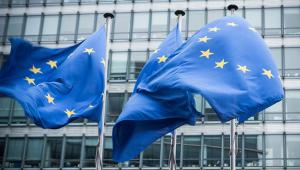Nearly 30% of American LNG exports are now destined for Europe according to official data – up dramatically from just 5% in 2016.
The latest figures on this booming transatlantic trade come as energy executives gather in Brussels in a sign of strengthening EU–US energy cooperation to discuss further ways to enhance the trade in LNG.
“Energy security is one of the key success stories of our transatlantic cooperation and one where we both have a keen mutual interest,” EU commissioner for energy and climate Miguel Arias Cañete said after meeting US secretary of energy Rick Perry at the event.
“It is therefore our common objective to further deepen our energy cooperation. Natural gas will remain an important component of the EU’s energy mix in the near future as we move towards cleaner sources of energy.
“Given our heavy dependence on imports, US liquefied natural gas, if priced competitively, could play an increasing and strategic role in the EU gas supply.”
The EU gas market is the second largest in the world and European leaders see increased imports of US LNG as essential to their efforts to diversify supplies.
Gas has been identified as an important transition fuel in the EU’s efforts to decarbonise its economy, and European gas imports are projected to increase as domestic production falls.
The capacity to handle increasing imports are being expanded with the extension of a LNG terminal in Poland on the Baltic Sea coast and plans for another on the island of Krk in Croatia.
The EU is also supporting the development of LNG capacity in Greece, Spain, Ireland, Sweden and Cyprus and estimates that 23 member states will have access to the global LNG market by 2022.
With a share of 12.6% of European LNG imports in 2019 so far, the US is now Europe’s third largest supplier.
Speaking in Brussels, Perry said: “We share a history of transatlantic cooperation, through good times and bad, and together we promote our heritage of freedom.
“The strength of this relationship can particularly be seen in energy. When it comes to natural gas, we each have what the other needs to derive tremendous mutual benefit from advancing our energy relationship.”














